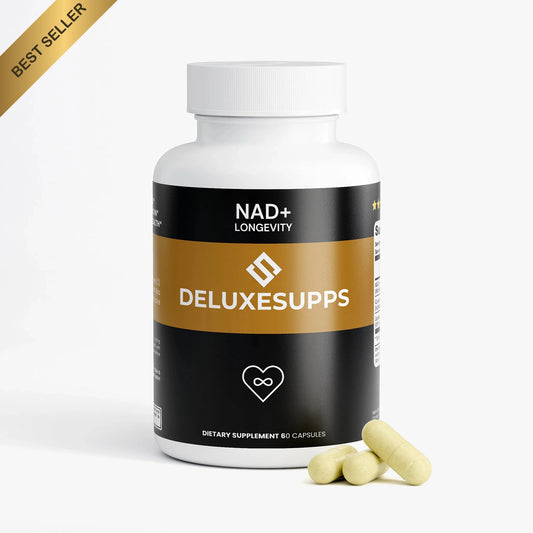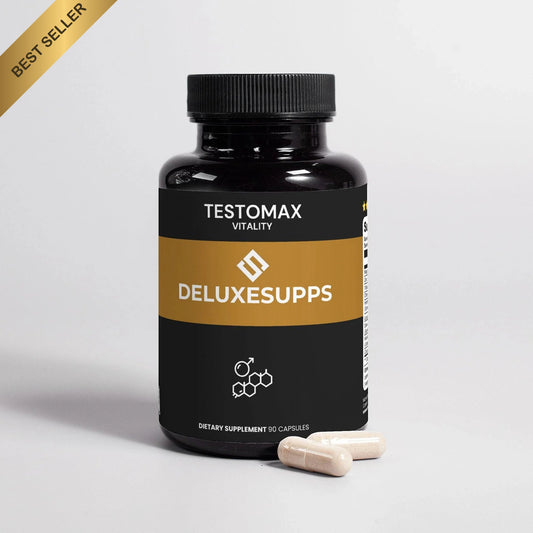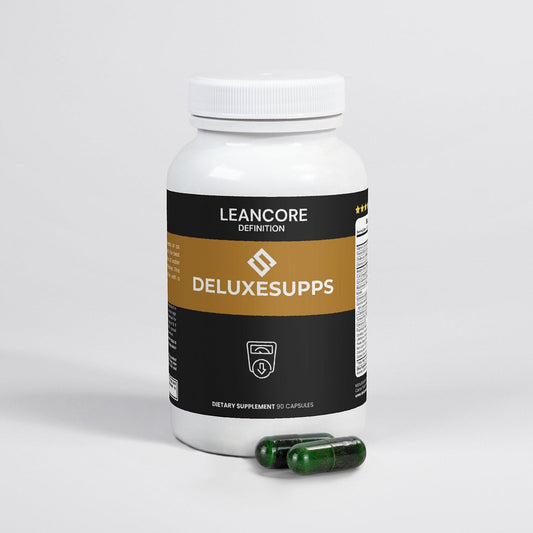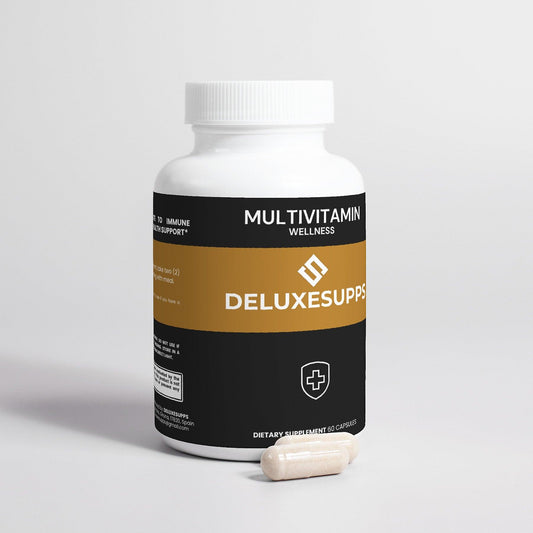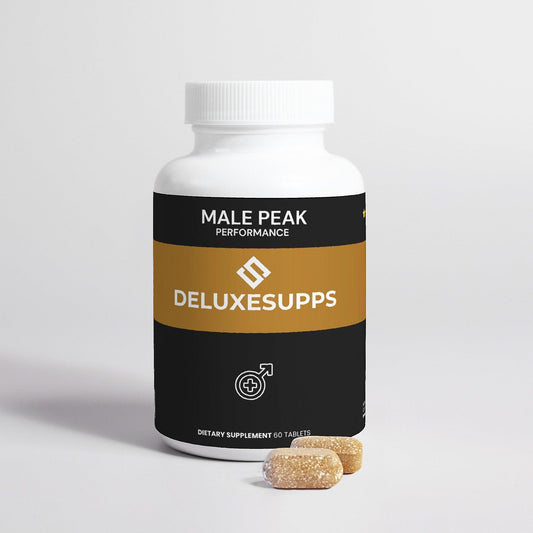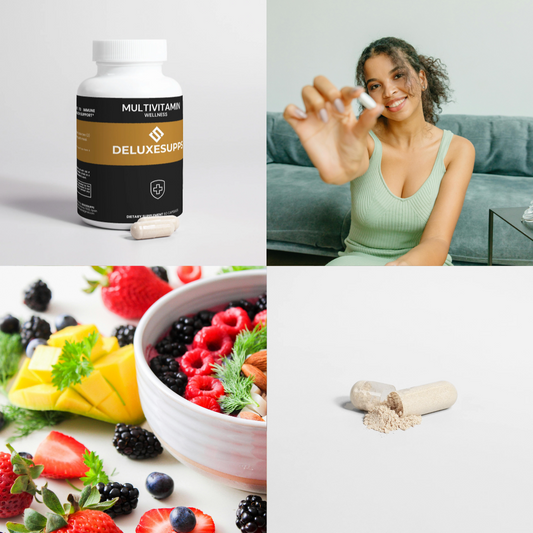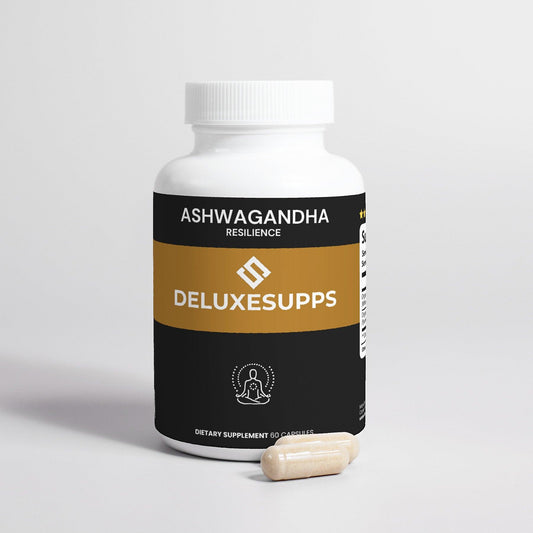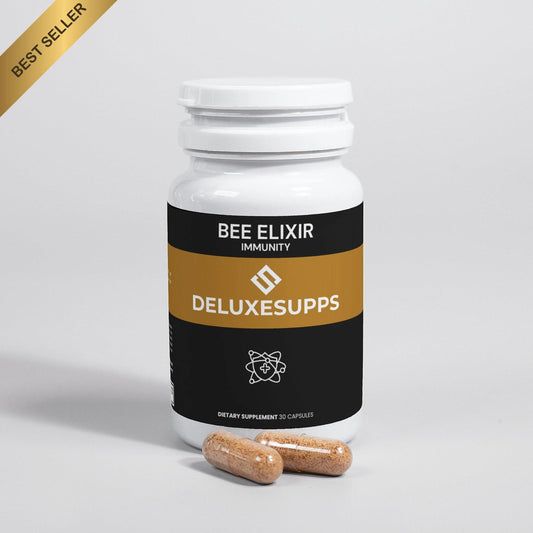Updated on: 2025-11-15
Table of Contents for Brain Health Support Guide
- Why Brain Health Support Matters in Everyday Life
-
Step-by-Step Guide to Brain Health Support You Can Start Today
- Step 1: Define Your Brain Wellness Support Goals
- Step 2: Simplify Your Daily Brain Support Routine
- Step 3: Build a Brain-Friendly Plate (Diet for Brain Health)
- Step 4: Create a Hydration Plan That Sticks
- Step 5: Design a Focus-First Environment
- Step 6: Add Gentle Movement and Strategic Breaks
- Step 7: Consider Routine-Friendly Complements
- Tips for Practical Cognitive Health Support at Home and Work
- FAQs on Brain Health Support and Everyday Choices
- Wrap-up & Final Thoughts on Brain Wellness Support
- About the Author: Deluxesupps
Why Brain Health Support Matters in Everyday Life
Brain health support is about setting up daily habits and simple tools that help you feel clear, steady, and ready for what your day brings. In your first 100 words here, you’ll find the main keyword—brain health support—framed as a practical approach, not a promise. Whether you want sharper organization, calmer mornings, or better follow-through on tasks, you can build a flexible routine that fits your lifestyle. This guide also touches on cognitive health support and brain wellness support, plus easy ways to plan meals and habits that keep your day on track.
Think of this as a realistic playbook: quick wins you can apply today, a diet for brain health that is simple and enjoyable, and a few product options people often add to their routine. You’ll see use cases, light testimonials, and focused calls to action, so you can move from reading to doing without feeling overwhelmed.
Step-by-Step Guide to Brain Health Support You Can Start Today
Step 1: Define Your Brain Wellness Support Goals
Start by writing one or two clear goals for brain wellness support. Examples: “Finish important tasks before lunch,” “Stay calm during busy transitions,” or “Maintain an evening wind-down routine.” Keep goals measurable and small. This focus helps you choose habits and tools that match your needs without overloading your schedule.
Step 2: Simplify Your Daily Brain Support Routine
Create a short morning and evening checklist. In the morning, try a glass of water, a short stretch, and a quick review of your top three priorities. In the evening, tidy your workspace and set out tomorrow’s essentials. When your routine is simple, you’re more likely to keep it—and consistent routines are the backbone of daily brain health support.
Step 3: Build a Brain-Friendly Plate (Diet for Brain Health)
A diet for brain health can be straightforward. Aim for colorful produce, satisfying protein, and smart fats from common whole-food sources. Keep snacks simple—think fruit with nuts or yogurt with a sprinkle of seeds. Short on time? Batch-prep a couple of go-to meals on one day, then repeat them during the week. Your aim is reliable fuel that supports steady energy, not perfection.
Step 4: Create a Hydration Plan That Sticks
Fill a large bottle in the morning and aim to finish it by lunchtime, then refill once. Add a timer reminder if helpful. Hydration is a small lever that can support overall comfort and daily rhythm, making other cognitive health tips easier to follow.
Step 5: Design a Focus-First Environment
Reduce visual clutter, silence non-essential notifications, and keep only what you need within reach. If you work in blocks, use a simple timer and give each block one task. An environment that supports focus is a quiet boost to brain wellness support because it removes frequent decision-making and distraction.
Step 6: Add Gentle Movement and Strategic Breaks
Short walks, light stretches, or a quick stair climb can refresh your energy. Try a pattern like 50 minutes of work followed by a 5–10 minute reset. These tiny breaks help you return to your priority list with steady momentum.
Step 7: Consider Routine-Friendly Complements
Many people explore routine-friendly complements as part of a brain health support plan. Common options include daily multivitamins, botanical blends, or nutrient complexes. If you’re building a simple stack, start with one item at a time so you can notice how it fits your day. Explore options in our catalog for ideas that suit your schedule and preferences. For a curated view, see All products.
Tips for Practical Cognitive Health Support at Home and Work
- Use habit anchors. Attach a new habit to one you already have—pour water right after you start the coffee maker, or do a two-minute stretch after you open your laptop.
- Batch the essentials. Prepare two meals you enjoy and rotate them. Keep a snack bowl of simple, satisfying options within reach.
- Schedule “focus windows.” Put two or three focus blocks on your calendar and protect them. Treat them as appointments with yourself.
- Make support visible. Keep your water bottle, checklist, and any complements in a dedicated tray or drawer so they’re easy to grab.
- Track energy, not just tasks. A quick 1–5 rating in the morning and afternoon helps you notice patterns and adjust your routine.
- Start small, then layer. Add one habit at a time. When it feels natural, add the next layer.
Real-world use cases and everyday brain health support
Busy professional: Blocks meetings into clusters, uses a timer for two deep-work sessions, keeps a fruit-and-nut snack on the desk, and places a daily complement tray near the laptop. Result: A calmer calendar and fewer last-minute scrambles.
Parent on the go: Preps overnight oats twice a week, keeps a family water station by the door, and uses a sticky-note dashboard for top priorities. Result: Smoother mornings and a predictable rhythm after school.
Aging adult: Follows a simple checklist, keeps a pill organizer for routine-friendly complements, and walks with a neighbor most afternoons. Result: A steady routine that’s easy to follow and adapt.
Light testimonials on brain wellness support routines
“The biggest change for me was the checklist. I feel more organized, and my mornings run smoother.” — Customer, everyday routine
“I started using a focus timer and a water bottle on my desk. Small changes, big difference in how settled my day feels.” — Customer, work-from-home routine
“I like having a simple stack I can take with breakfast. It keeps my routine predictable.” — Customer, consistency-focused routine
Routine-friendly product ideas people explore
Some shoppers build their plan with a single daily item; others prefer a small stack. Options people commonly explore include:
- A daily multivitamin to cover general bases.
- Ashwagandha, a traditional botanical used in many wellness routines. See Ashwagandha.
- NAD+ support, often chosen by those focused on routine energy and daily rhythm. Explore the NAD+ supplement.
- Mushroom blends, a popular choice in wellness stacks. View Mushroom Complex 10x.
Always choose options that fit your preferences, budget, and schedule. If you are unsure about what works for you, consider speaking with a qualified professional.
FAQs on Brain Health Support and Everyday Choices
What is brain health support and why is it important?
Brain health support refers to daily habits, environments, and routine-friendly tools that help you feel organized, steady, and ready for your priorities. It matters because small, consistent choices—like a simple checklist, a focus window, and steady hydration—can make your day feel smoother and more manageable.
What are the most effective ways to support brain health in daily life?
Focus on what you can repeat: a short morning routine, a calm work environment, batch-prepped meals, hydration, and gentle movement. Choose one or two complements that fit your schedule and preferences, and build your plan step by step. Consistency is the key.
How to create a brain health support plan for aging adults?
Keep it simple, visible, and repeatable. Use a checklist with clear steps, place water and routine-friendly items in a tray, and build in a short daily walk or stretch. Add social time—like a neighbor walk or phone call—to make the routine enjoyable and easier to keep.
Are there easy cognitive health tips for busy schedules?
Yes. Anchor habits to existing routines, prep two reliable meals, and schedule two focus windows per day. Keep a bottle of water, a small snack, and your complement tray in one place for quick access.
Where should I start if I want product options in my routine?
Start with one item and keep a simple log for two weeks to see how it fits your day. If you want to browse curated options, explore All products and choose items that align with your routine and preferences.
Wrap-up & Final Thoughts on Brain Wellness Support
Brain wellness support is most effective when it’s practical, repeatable, and tailored to your life. Begin with one goal, one morning habit, and one focus window. Add a brain-friendly plate, a hydration plan, and a tidy workspace. If you choose products, pick one at a time and keep it simple. Your plan should feel manageable, not overwhelming. When your routine fits your day, consistency follows—and that consistency is where steady progress lives.
Ready to assemble your routine? Start by choosing one new habit for tomorrow and, if you like, add one routine-friendly product that fits your schedule. Explore options such as Ashwagandha, the NAD+ supplement, or a blend like Mushroom Complex 10x—and keep your plan focused on small steps you can sustain.
Disclaimer: This article is for informational purposes only and does not provide medical advice. Always consider your personal circumstances and consult a qualified professional with questions about your individual needs.
About the Author: Deluxesupps
Deluxesupps
Deluxesupps creates convenient, routine-friendly wellness options designed to fit real life. Our team focuses on clarity, simplicity, and customer-first education around daily brain health support and broader wellness routines. Thanks for reading—if you have questions, we’re here to help you find a plan that feels natural and sustainable.
The content in this blog post is intended for general information purposes only. It should not be considered as professional, medical, or legal advice. For specific guidance related to your situation, please consult a qualified professional. The store does not assume responsibility for any decisions made based on this information.
